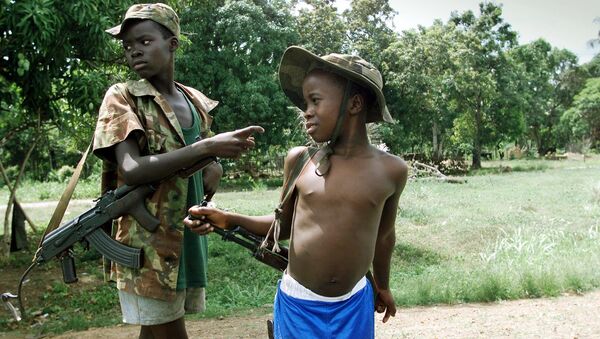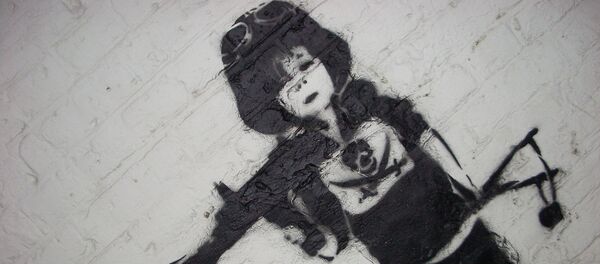An investigation has unearthed some surprising and shocking findings that former child soldiers from Sierra Leone, had been outsourced to private British firms by the Sierra Leonean government, according to Danish filmmaker, Mads Ellesoe, who, with the help of a researcher, filmed the story for his documentary "The Child Soldier's New Job."
In an exclusive interview with Sputnik, the filmmaker reveals how this situation was one of the worst a person could be put through, also stating how many of these people are living in poverty today.
Thousands of children were forced to fight in Sierra Leone's 11-year civil war, which ended in 2002. More than 50,000 people were killed in the fighting and many tens of thousands more mutilated or raped by rebels.
By 2009, with Iraq in chaos, impoverished Sierra Leone was looking for a way to engage its workforce, said Maya Mynster Christensen, a researcher at the Danish Institute Against Torture, who made repeated trips to the West African country.
"The film is about former child soldiers from Sierra Leone who were outsourced to British private security services and made to work as guards in Iraq from 2009," documentary filmmaker Mads Ellesoe told Sputnik.
"The film briefly looks at outsourcing these former child soldiers. It assesses this outsourcing when it is done for the purposes of warfare, as well as the impact on the individuals."
When asked if the British companies were aware of what was going on, Ellesoe said:
"I am not sure if they knew that former child soldiers were being used. We do not know this."
Ellesoe ultimately refused to name the companies involved.
"There were several [companies] involved, but I'm sorry I will not be able to tell you specifically who they are."
However, it was the impact that this experience had on the individuals involved that leaves a truly terrifying picture.
"Some of them are still in Iraq working, but all of them are living in terrible poverty," the filmmaker told Sputnik.
"Well, I am no psychologist but yes, I spoke to someone who is a counselor and they told me that this is one of the worst things you could do to a person. Take them from one war zone and put them into another. It's very bad. They would need rehabilitating, but I doubt they got it."
Ellesoe hopes that this film will be more then just a documentary and that perhaps change can take place as a result.
"For me, I just filmed the piece and put it out into the public arena. I do hope though that something changes as a result of this and awareness is built."



